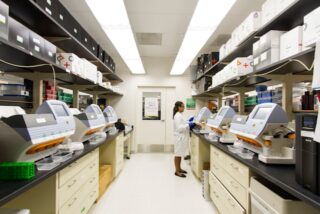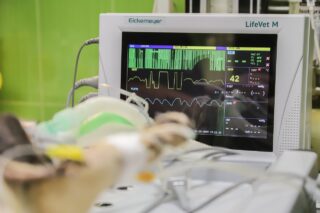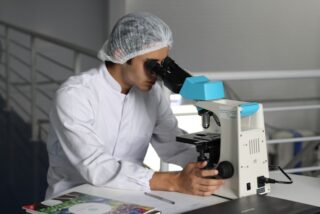
A well-balanced diet rich in fruits, vegetables, whole grains, and lean proteins is a cornerstone of cancer prevention. Nutrient-dense foods provide the body with essential vitamins, minerals, and antioxidants that help protect cells from damage. Studies have shown that a diet high in fiber and low in red and processed meats can reduce the risk of colorectal cancer. Additionally, incorporating a variety of colorful fruits and vegetables can boost the immune system and help the body fend off carcinogens. It’s important to limit the intake of sugar and unhealthy fats, which can contribute to obesity—a significant risk factor for various types of cancer. By making mindful dietary choices, individuals can significantly lower their cancer risk and improve overall health.
Regular physical activity: a key to lowering cancer risk
Engaging in regular physical activity is another crucial component of cancer prevention. Exercise helps to maintain a healthy weight, which is important because obesity is linked to an increased risk of several cancers, including breast, prostate, and colon cancer. Physical activity also helps to regulate hormone levels and strengthen the immune system, both of which play a role in reducing cancer risk. The American Cancer Society recommends at least 150 minutes of moderate-intensity or 75 minutes of high-intensity exercise each week. Activities such as walking, cycling, swimming, and strength training can all contribute to a healthier, cancer-resistant body. Incorporating regular exercise into daily routines is an effective strategy to enhance well-being and reduce the likelihood of developing cancer.
The role of regular screenings and early detection in cancer prevention

Early detection through regular screenings is vital for catching cancer in its initial stages when it is most treatable. Screenings such as mammograms, colonoscopies, and skin checks can detect cancer before symptoms appear, increasing the chances of successful treatment. For individuals with a family history of cancer, genetic testing and more frequent screenings may be recommended. Staying informed about the types of screenings appropriate for one’s age and risk factors, and adhering to recommended schedules, can significantly impact cancer outcomes. Preventative care and vigilance in monitoring one’s health are essential components of an effective cancer prevention strategy.
Boost your cancer prevention strategy with expert SEO tips
To ensure that valuable information about cancer prevention reaches a broader audience, implementing effective SEO (Search Engine Optimization) strategies is crucial. SEO helps improve the visibility of health-related content on search engines, making it easier for individuals seeking advice on cancer prevention to find reliable resources. By optimizing content with relevant keywords, such as “cancer prevention tips,” “healthy diet for cancer prevention,” and “importance of cancer screenings,” blogs and websites can attract more visitors and provide them with critical health information. Furthermore, using meta descriptions, alt texts for images, and internal linking can enhance the overall user experience and improve search engine rankings.
For comprehensive guidance on maximizing your online presence with SEO, visit Dr. Seo. Their expertise in search engine optimization can help ensure your health and wellness content reaches those who need it most, ultimately contributing to the broader goal of cancer prevention.
Avoiding tobacco and limiting alcohol consumption
One of the most significant steps an individual can take to reduce their cancer risk is to avoid tobacco in all its forms. Tobacco use is directly linked to numerous types of cancer, including lung, mouth, throat, pancreas, bladder, cervix, and kidney cancers. Smoking is particularly harmful, but even smokeless tobacco products carry carcinogens that increase cancer risk. Quitting smoking or never starting in the first place is one of the most effective ways to protect against cancer.
Similarly, limiting alcohol consumption is crucial. Alcohol can contribute to cancers of the mouth, throat, esophagus, liver, colon, and breast. The risk increases with the amount of alcohol consumed and the duration of drinking habits. The American Cancer Society recommends that if individuals choose to drink, they should limit their intake to one drink per day for women and two drinks per day for men. Reducing alcohol consumption can lower cancer risk and contribute to overall health improvement.
Protecting skin from UV radiation
Skin cancer is one of the most common types of cancer, but it is also one of the most preventable. Protecting skin from harmful ultraviolet (UV) radiation is essential in reducing the risk of skin cancer, including melanoma, the deadliest form. Simple precautions can make a significant difference, such as wearing protective clothing, using sunscreen with a high SPF, and seeking shade during peak sun hours. Additionally, avoiding tanning beds and sunlamps, which also emit UV radiation, is crucial.
Regularly examining the skin for any new or unusual moles or changes in existing moles can aid in early detection. The “ABCDE” rule (Asymmetry, Border, Color, Diameter, Evolving) is a helpful guide for identifying potentially problematic moles that should be examined by a healthcare professional. Taking these steps can help individuals protect their skin and reduce the likelihood of developing skin cancer.






